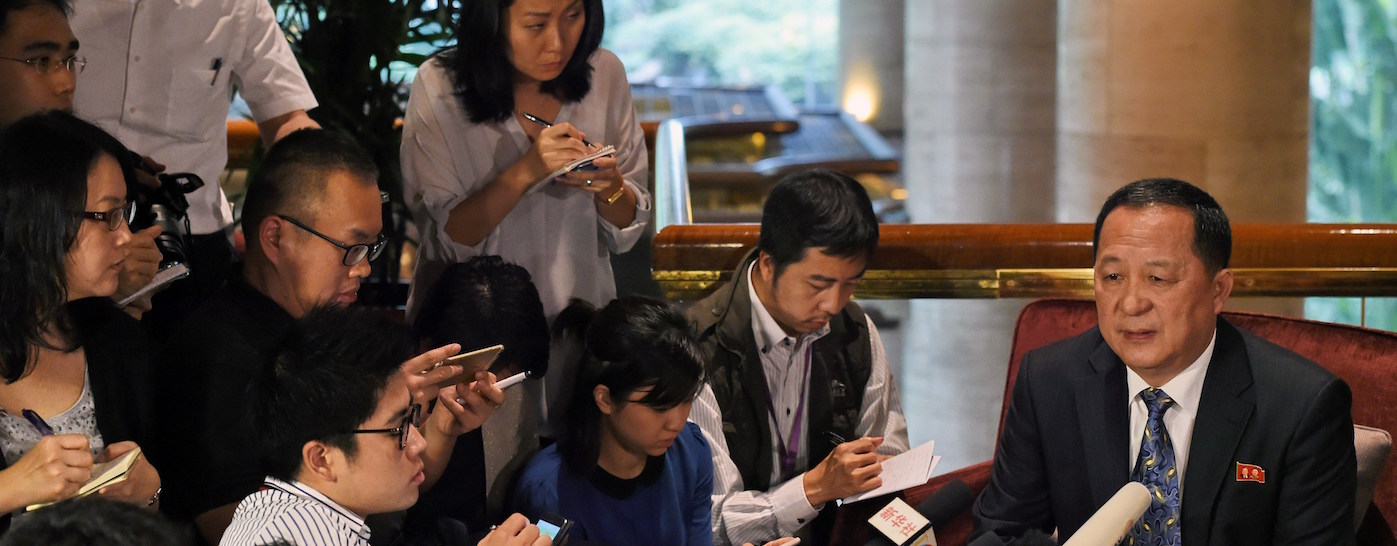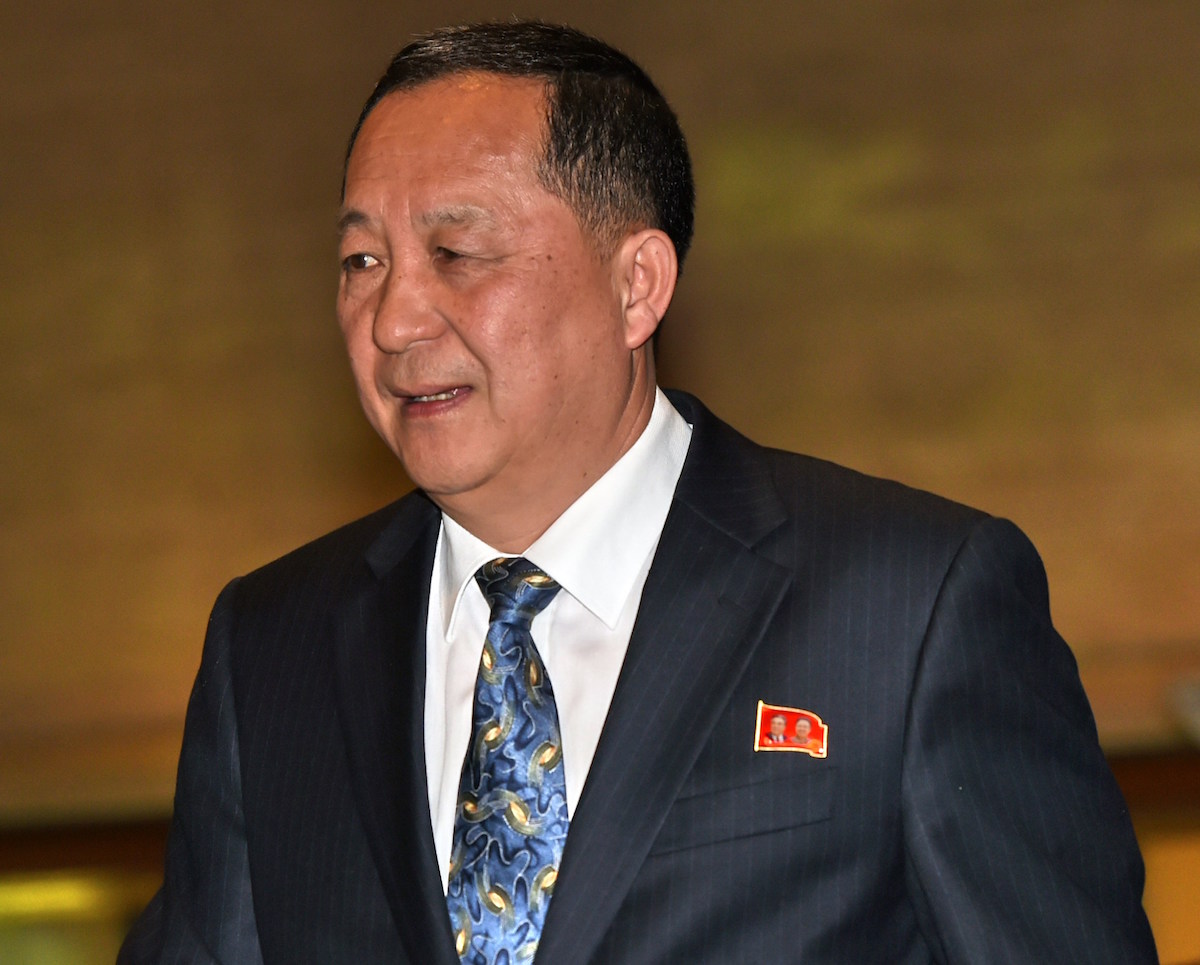
North Korea’s New Foreign Minister
Who is he?
Ri Yong-ho is the new Minister of Foreign Affairs for the Democratic People’s Republic of Korea (DPRK). He also became an alternate member of the Workers’ Party of Korea (WPK) Political Bureau when the 7th Congress of the WPK was held in May 2016.
Minister Ri is a career diplomat and had previously served since September 2010 as the Vice Minister of Foreign Affairs and DPRK representative to the Six-Party Talks. A longtime interlocutor in managing DPRK’s relations with the U.S., the Republic of Korea and the United Nations for the past twenty years, he first started participating in DPRK’s negotiations with the U.S. on its nuclear program in 1995, when he was promoted to be a counselor at the foreign ministry. In October 2000, he accompanied then 1st Vice Chairman of the National Defense Commission, Jo Myong Rok on his historic trip to the U.S., where Jo became the first and only DPRK official to visit the White House and meet the U.S. president, President Bill Clinton. In the early 2000s, he held several ambassadorial positions, including to the United Kingdom and Ireland, before he returned to Pyongyang in 2007 to take over as general diplomatic counsel, which included some responsibility for Six-Party Talks. He also accompanied Minister of Foreign Affairs Pak Ui Chun during his trip to Asia in July 2010, which included the ASEAN summit in Hanoi, Vietnam.
Earlier in his diplomatic career, which began in 1978, he served as a manager in the Ministry of Foreign Affairs’ International Organizations Bureau (1988 – 1995), secretary at the DPRK embassy in Sweden (1985 – 1988), and secretary at the DPRK embassy in Zimbabwe (1979 – 1984). Ri is a third generation North Korean elite. His father Ri Myong-je was a former Korean Central News Agency editor and vice director of the KWP Organization Department who had served as a deputy director within Kim Jong Il’s Personal Secretariat in the 1980s and early 1990s. He studied English at the Pyongyang University of Foreign Language. He should not be confused with Vice Marshal Ri Yong-ho, who was purged by Kim Jong-un in July 2012, but are not related.

Why has he been in the news?
On May 16, 2016, the DPRK government confirmed in a diplomatic letter to the British Foreign Office that Ri Yong-ho has been promoted to be the new minister of foreign affairs, replacing Ri Su-yong, who had served in that position since April 2014. Although Ri’s promotion has not yet been officially announced by DPRK state media, a senior ROK official also confirmed the news on May 17.
During the May 7th Party Congress, his predecessor Ri Su-yong was elected to full WPK Political Bureau membership, and promoted to the position of WPK Vice Chairman for International Affairs, replacing Kang Sok Ju, who remains terminally ill. Alongside his predecessor, they became the new Political Bureau’s foreign policy representatives, replacing Kang Sok Ju and Kim Yang Gon respectively, the latter whom had passed away in a car accident in December 2015.
What can we expect from him?
Foreign Minister Ri’s promotion raises questions about the disposition of Kim Kye-gwan. Kim was previously the chief negotiator for the Six-Party Talks and then moved on to becoming senior vice minister of foreign affairs in 2010. Kim was often seen accompanying Kim Jong-un during meetings with prominent Westerners (president Bill Clinton in 2009 and president Jimmy Carter in 2010). Ri’s promotion appears to have skipped over Kim.
Foreign Minister Ri Yong-ho will have big shoes to fill as his predecessor Ri Su-yong was an active traveler and skilled diplomat…
Foreign Minister Ri will have big shoes to fill as his predecessor Ri Su-yong was an active traveler and skilled diplomat, famous for paying the first visit to the United Nations General Assembly in 15 years when he gave a speech there in 2014, and for travelling across Africa, Europe, Southeast Asia and the Middle East, including a visit to Cuba in March 2015. He was most recently in the U.S. in April 2016 to sign the Paris Agreement at the UN. Ri Yong-ho’s appointment comes at a time when tensions are high in the region because of North Korea’s nuclear and missile provocations in early 2016. Although China and Russia have called for diplomatic talks to ease tensions, Ri’s job will likely be difficult given the effect of recent events and multilateral and unilateral sanctions imposed in the aftermath of DPRK’s fourth nuclear test and missile test. 

[carousel-horizontal-posts-content-slider-pro id='113']